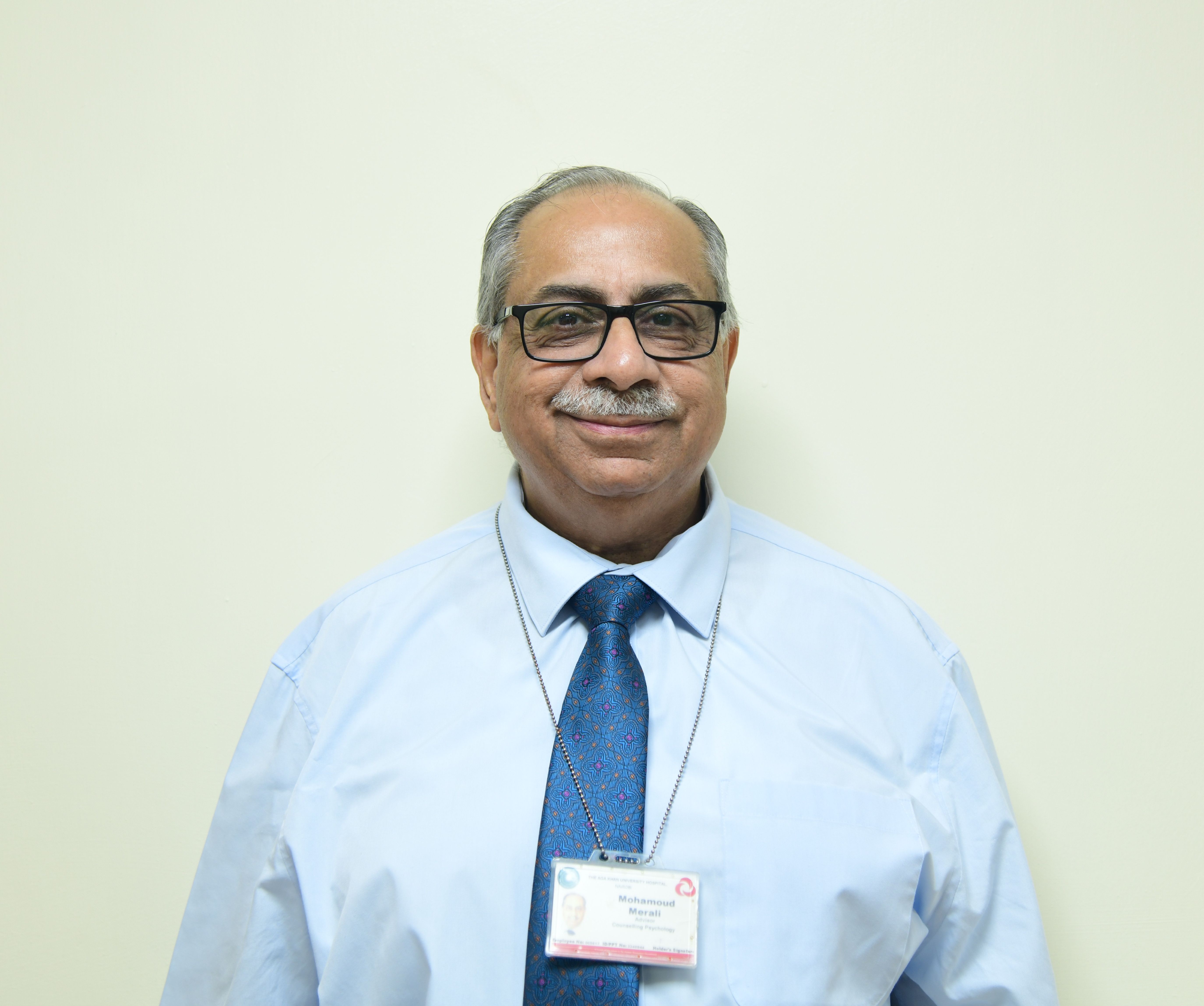 Dr
Mahmoud Merali, a psychologist at Aga Khan University Hospital, Nairobi
Dr
Mahmoud Merali, a psychologist at Aga Khan University Hospital, NairobiThe idea that “real men don’t cry” has lingered in society
for generations, painting a picture of masculinity where emotional
vulnerability is seen as weakness. Dr Mahmoud Merali urges men to express their
emotional vulnerability.
Dr Mahmoud Merali, a
psychologist at Aga Khan University Hospital, Nairobi, said the concept is not only misleading but also puts men’s mental health at risk. He says that he is on a mission to
change that. He insists that men, too, should cry because it is necessary.
Throughout history, boys have grown up hearing phrases like
“Be a man,” or “Men don’t show their emotions.” These seemingly harmless
statements often pressure men into bottling up their feelings and suffering in
silence. Dr Merali, a specialist in medical, counselling, clinical and mental
health psychology, says this culture of emotional suppression is dangerous.
“We, as men, are conditioned to be emotionally tough,”
explains Dr Merali. “From a very young age, boys are taught not to shed tears,
no matter the pain. This cultural expectation becomes ingrained in us, making it
difficult for men to express their feelings in adulthood, even when facing
extreme stress, grief or trauma,” he says.
Suppressing emotions may seem like a strength at first
glance, but Dr Merali warns of the long-term dangers. “Unexpressed grief,
sadness or frustration does not just disappear. Instead, it festers and emerges
as anxiety, depression, anger or even physical illness,” he says.
Indeed, global mental health statistics tell a worrying
story: men are far less likely than women to seek help for mental health
issues, yet they are more prone to some of its most serious consequences. For
example, in many countries, suicide rates are disproportionately higher among
men. “It’s not that men are naturally less prone to emotion or pain,” Dr.
Merali points out. “It’s that the stigma around expressing vulnerability makes
it harder for them to reach out for support.”
Dr Merali emphasises that crying is not a gendered act but a
universal human expression of emotion. “Crying serves an important
psychological purpose,” he says. “It allows the body to release built-up
tension and can lead to a sense of relief. Shedding tears during moments of
grief or stress is a healthy, natural response.”
Moreover, Dr Merali notes that crying is not a sign of weakness
or immaturity. “On the contrary,” he explains, “it takes courage to confront
one’s emotions and to show others that you are human. The ability to be
vulnerable is a profound strength since it is a sign of an emotionally
intelligent person.”
Part of Dr Merali’s work is challenging the outdated
definitions of masculinity that still dominate Kenyan and global society. “We
need to raise our sons and support our fathers, brothers, and husbands to
understand that masculinity can be both strong and sensitive,” he says.
He suggests that men who embrace their emotions are better
equipped to deal with life’s challenges. “They form stronger relationships,
both personally and professionally and are more resilient in the face of
setbacks. We should celebrate men who can cry, who can talk about their
disappointments and fears. They are modelling healthy behaviour for future
generations.”
Doing away with the “men don’t cry” myth requires more than
just individual resolve; it needs a cultural shift. Dr Merali advocates for
more spaces, both at home and in workplaces, where men can discuss their feelings
without judgment. Hospitals, schools and communities should promote mental
health awareness tailored to men, encouraging them to seek support when they
need it.
“Nobody should feel ashamed for having emotions,” he
advises. “We want to build a society where everyone, regardless of gender,
feels safe to be open about their struggles.”
Dr Merali believes the journey towards emotional openness among men will take time, but every conversation helps. “When men begin to cry openly when they allow themselves to be emotionally vulnerable, they are not just acting for themselves. They are paving the way for a healthier and more compassionate society.”











